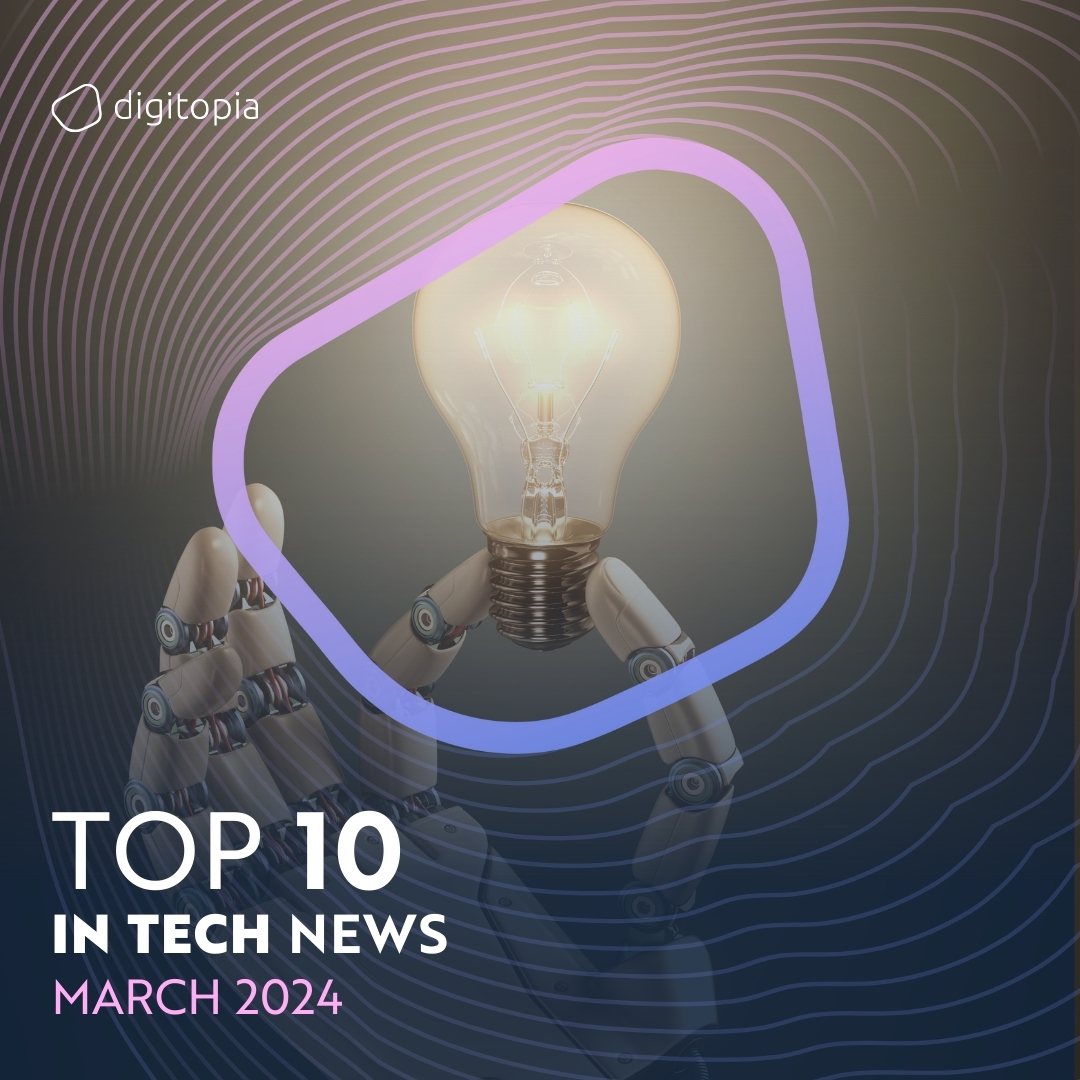
1- Why Boards Need To Clone Starbucks Digital Leadership
Starbucks shines as a model in using technology for growth amid high failure rates in digital transformation and AI adoption among organizations. With its Triple Shot Reinvention Strategy, the company has bolstered customer loyalty, increased digital transactions, and plans to expand to over 55,000 locations by 2030. Embracing its identity as part tech company, Starbucks has successfully integrated digital initiatives and AI, through partnerships and its Deep Brew platform, enhancing customer experience and setting a standard for navigating the AI era with a focus on innovation and efficient financial management.
Source: Forbes
2- The Necessity Of Building Strong Data & AI Executive Leadership For An AI Future
As AI becomes ubiquitous, transforming global organizations with its opportunities and challenges, leaders like Mustafa Suleyman and Jamie Dimon underline its essential role across all job functions. The transition to effective AI adoption relies on solid data, cultural readiness, and lessons from past tech initiatives. The rise of roles such as the Chief Artificial Intelligence Officer (CAIO) highlights the recognition for dedicated AI leadership. Organizations are encouraged to integrate AI as a core business function, educate boards on its potential and risks, and develop strong data and AI leadership to remain competitive in a rapidly evolving landscape.
Source: Forbes
3- The Future of Disease Detection: New Technology Identifies Individual Full-Length Human Proteins
Scientists at Delft University of Technology have developed a novel technique for identifying proteins, crucial for understanding diseases like cancer and COVID-19, by preserving their complete structure and reading their unique “fingerprints.” This method, detailed in Nature Nanotechnology, surpasses traditional mass spectrometry approaches, which fragment proteins, potentially losing vital information. The new approach, termed FRET X, offers higher sensitivity, enabling the detection of proteins in much lower concentrations and with greater precision by lighting up amino acids linked to DNA fragments. This breakthrough could lead to early-stage diagnosis of diseases by identifying characteristic proteins in small patient samples, a significant leap forward from current methods. The research team is exploring the commercial potential of FRET X to revolutionize disease diagnosis and treatment efficacy.
Source: Scitech Daily
4- Microsoft Secure 2024: Showcasing new generative AI cybersecurity features to help you defend
Microsoft Secure on March 13, 2024, is a must-attend digital event for security practitioners seeking to leverage AI for enhanced defense capabilities. From 9:00 AM to 11:00 AM PST, experts will unveil new technologies and insights critical for safeguarding organizations. The event will feature a security keynote by Vasu Jakkal and Charlie Bell, introducing innovations in Microsoft’s Security portfolio, including AI-driven security solutions like Microsoft Copilot for Security, which automates security workflows. Attendees will also explore advancements in exposure management and tools for securing and governing AI across various Microsoft platforms. With sessions on customizing defense strategies with AI, ensuring responsible AI adoption, and proactive threat management, this event promises valuable learning opportunities for enhancing organizational security.
Source: Tech Community Microsoft
5- Signos uses a glucose monitor patch and AI to help you eat healthier. Here’s what it’s like
Ashley Capoot’s experience with Signos, a metabolic health platform using continuous glucose monitors (CGMs) and an AI-powered app, illustrates how daily habits affect blood sugar. By subscribing and using a Dexcom G7 monitor, Ashley learned the impact of diet, exercise, sleep, and stress on glucose levels, discovering surprising personal reactions to common foods like oatmeal. Signos offers personalized insights, helping users understand and manage their glucose spikes, potentially improving metabolism and reducing chronic disease risk. This detailed personal exploration underscores the platform’s potential for enhancing health awareness and lifestyle choices.
Source: CNBC
6- World’s first major act to regulate AI passed by European lawmakers
The European Union’s parliament has approved the world’s first significant regulatory framework for artificial intelligence, categorizing AI technologies based on risk levels ranging from unacceptable to low hazard. Expected to take effect by May, after the European Council’s endorsement, this pioneering AI Act aims to foster innovation while ensuring the protection of fundamental rights. Amidst debates over regulation versus self-regulation, this act sets a precedent for global AI governance, balancing technological advancement with ethical standards and safety.
Source: CNBC
7- Will deepfake AI content influence the 2024 election?
A survey of 2,000 U.S. voters highlighted concerns over the impact of deepfakes and AI-generated content on the 2024 election, revealing that many cannot distinguish between AI and human-created content. Nearly half anticipate a negative impact from deepfakes, with a majority unable to identify AI-generated images correctly. Respondents expressed significant concerns about AI’s role in spreading misinformation and impersonating political figures, leading to an overall apprehension about the protection of personal information by political campaigns. The study suggests a strong desire for enhanced cybersecurity measures within political campaigns to build voter trust and ensure the integrity of electoral processes.
Source: NY Post
8- TechScape: Is the US calling time on Apple’s smartphone domination?
Apple faces significant regulatory challenges in the US and EU, grappling with accusations of monopolistic practices in the smartphone market. A US lawsuit alleges Apple restricts competition to maintain dominance, leveraging privacy and security claims to justify anti-competitive actions. Meanwhile, the EU investigates Apple under the Digital Markets Act for limiting developer freedoms, showcasing differing regulatory approaches. The US system demands proving consumer harm in court, a lengthy and costly process, whereas the EU’s swift, regulatory action emphasizes quicker enforcement with less judicial involvement.
Source: TheGuardian
9- Move over, solar eclipse: Scientists predict a once-in-a-lifetime nova explosion in the coming months
The nova T Coronae Borealis, located in the Corona Borealis system 3,000 light-years away, is anticipated to erupt in a spectacular nova visible to the naked eye by September 2024, an event occurring roughly every 80 years. This binary system, consisting of a white dwarf and a red giant, undergoes a thermonuclear explosion due to material accumulation on the white dwarf’s surface from the red giant, leading to a massive release of energy. Such novas provide insights into mass transfer and thermonuclear explosions in binary star systems, marking a rare cosmic spectacle eagerly awaited by astronomers.
Source: BBC
10- Why the Baltimore Bridge Collapsed So Quickly
The collapse of Baltimore’s Francis Scott Key Bridge, after being struck by the MV Dali container ship, highlights the vulnerabilities of steel structures and the formidable force of such vessels. Despite steel’s appearance of strength, it can fail catastrophically under excessive force, especially in “continuous” bridges like this one, which lacked joints and relied on a central truss system supported by pylon-like structures. The incident, which caused significant disruption and led to a search for missing workers, underscores the need for stringent safety measures and the potential for improvements in bridge design and emergency response protocols.
Source: Wired

